Andreas
Algava was born in Thessaloniki,
Greece in 1939, the only son of Henri Algava and Allegra Carasso-Algava. When
Andreas was 16 months old, Hitler’s forces invaded the country of his birth.
Having to decide whether to believe the Nazi propaganda about a safe haven for
Jews in Poland or go into hiding and risk execution, Andreas’s parents chose
the latter relying on the courage and character of their Christian friends.
After the war, the Algava family moved to New York City and became U.S. citizens. Andreas became known as Andrew who later attended Cornell University where he earned an engineering degree. This was followed by military service in the U. S. Army including a tour of duty in France. After military service, Andrew worked with his father in the family export business in the United States and Argentina.
He joined IBM and worked on assignment in Germany where he lived with his wife, Priscilla and where his two daughters, Alisa and Carin were born. Andreas now lives in Rhode Island to be close to his daughters, son-in-law Michael and grandchildren Drew and Sabria.
Algava wrote 600 Days in Hiding: A Jewish Family in Nazi-Occupied Thessaloniki Greece to tell the story of his family’s survival during the Greek Holocaust. Andreas regards his book as his declaration for people to live in peace and harmony and a warning to not repeat the horrors of the past.
“Writing my Family’s story energizes me; it’s a fulfillment of a dream.” He plans to write a sequel to 600 Days in Hiding to address “How as individuals and society we are making very bad choices and need to take appropriate actions.”
The author is available for media interviews and speaking engagements in hopes of inspiring others to take action to create a more just world.
The author is committed to his personal mission: "To empower myself and others to manifest generosity, kindness, forgiveness and compassion for myself and for others to relieve the suffering in the world."
After the war, the Algava family moved to New York City and became U.S. citizens. Andreas became known as Andrew who later attended Cornell University where he earned an engineering degree. This was followed by military service in the U. S. Army including a tour of duty in France. After military service, Andrew worked with his father in the family export business in the United States and Argentina.
He joined IBM and worked on assignment in Germany where he lived with his wife, Priscilla and where his two daughters, Alisa and Carin were born. Andreas now lives in Rhode Island to be close to his daughters, son-in-law Michael and grandchildren Drew and Sabria.
Algava wrote 600 Days in Hiding: A Jewish Family in Nazi-Occupied Thessaloniki Greece to tell the story of his family’s survival during the Greek Holocaust. Andreas regards his book as his declaration for people to live in peace and harmony and a warning to not repeat the horrors of the past.
“Writing my Family’s story energizes me; it’s a fulfillment of a dream.” He plans to write a sequel to 600 Days in Hiding to address “How as individuals and society we are making very bad choices and need to take appropriate actions.”
The author is available for media interviews and speaking engagements in hopes of inspiring others to take action to create a more just world.
The author is committed to his personal mission: "To empower myself and others to manifest generosity, kindness, forgiveness and compassion for myself and for others to relieve the suffering in the world."
WEBSITE & SOCIAL LINKS:
Thank you so much for this interview, Andreas.
During the heart-wrenching years of the Holocaust – a period of history that so
many people would like to forget – Jews were being sent to concentration camps
and left to starve and eventually killed. It is a period of history that will
stay with us forever. There were a few survivors – namely yourself – and I want
to get into that aspect of it, but can you tell us why you felt you needed to
write your story?
Andreas: I believe it was my commitment to tell my parent’s story, which is also my own story even though I was so young. I grew up with four Holocaust survivors who retold the story of our family’s survival over and over through the years, and this story became embedded, and I took on the responsibility to tell others but not only about our fear, but about the immense courage of our Christian friends who risked their lives and lives of their children to save us. Can you imagine risking your child’s life to save a friend? These heroes did not hesitate. It was part of their character. So for me, committing myself to telling this amazing story was the pivotal point of my becoming a writer.I needed to write my story because my experience of what happened to us was horrific, it was an energy that I metabolized that create who I came to be. What I thought about, what I worried about, what I was afraid of; especially afraid to make mistakes. I learned to keep a low profile; don't stand out. Don't get caught, etc.
You were three years old at the time the Nazis
invaded your country and you and your family were taken in by a Christian
family to hide until it was safe to come out again. I know you were young, but
do you have any remembrances of that period?
Andreas: Yes, I do recall when we went to the first location in hiding, I had to sleep on two chairs butted together. I also remember being interrogated by the police: What's your father's name"? I had to remember at three years of age his alias, Aristides Toufexides. "What is your father's work"? I told the police he was an electrician because his friends vouched for his membership in the electricians union as a cover.
How did your family fare during that time? Were
there any illnesses? How were you able to get food?
.
Andreas: We were out in the open, unlike Anne Frank. My mother was shopping at an outdoor market, and a former neighbor saw her. The neighbor expressed shock at seeing her alive. My mother put her hand to her mouth to signal the neighbor to not reveal her presence. There were no illnesses, however, I was bitten on the cheek by a dog; we didn't know if the dog had rabies. After the market scare, my parents were afraid of being recognized a second time, so a good neighbor volunteered to take me to the hospital and claim I was her child. We went into hiding with gold coins and jewelry the owner of the house where we were staying would buy our food for us.
What did you and your family do for entertainment?
Andreas: During this time in hiding, entertainment was nonexistent.So I would pretend to be my father's barber and would hold the comb under his nose to make him look like Hitler.
Do you know if you had any close calls and thought
it was over for your family?
Andreas: My mother insisted on going to see Baba Yorgo, a fortune teller to ask "if we would ever be free"? When my parents were leaving the building, they saw a group of Germans checking everyone's identification. At that time, my parents did not have authorized papers and were terrified fearing they would be captured. They hid for hours before the Germans finally left the area.
Do you have any bad memories of that time?
Nightmares, that sort of thing?
Andreas: As a young child living in the United States safe from the evils of the Nazis when my parents would go out for an evening and I was alone with my sister I would wait by the window anxious and afraid they would never return.
Take me back to that period of your life. What would
you like to say to the Nazis who did this to your fellow Jews?
Andreas: You have a family at home, you have children at home... How could you do this, you took away my mothers parents and her brothers and sisters. With the passage of time, I came to realize they were incapable of feeling. They were without control, not unlike a rabid dog. Over the years, physically and spiritually I learned to forgive. I realized they were not in control of themselves and in that realization there was no soul to be affected by my anger. And in that, I was able to finally find forgiveness; my angst no longer served me.
I am so excited to read your new book, 600
Days in Hiding. What would you like to tell your readers?
Andreas: Please do one kind thing for someone today, and do this every day. As the saying goes, everyone is fighting an incredible battle and each of us needs love and support. If all of us did just one kind and compassionate thing for someone every day, imagine what a wonderful world we could all enjoy so much more!
Title: 600 DAYS IN HIDING
Author: Andreas Algava with Daniel Levine
Publisher: For Passion Publishing Company, LLC
Pages: 424
Genre: Memoir
Author: Andreas Algava with Daniel Levine
Publisher: For Passion Publishing Company, LLC
Pages: 424
Genre: Memoir
BOOK BLURB:
The Nazis invaded Salonika, Greece in April 1941. Within two
years, the city’s Jews were shipped by cattle cars to the Auschwitz death camp.
There were just three families who stayed in the city and survived because of
the courage and kindness of Greek citizens who risked their lives and hid these
Jewish families in their homes. Among the survivors were Andrew “Andreas”
Algava, who was three years old at the time, and his family. They were five of
56,000 Jews who had lived in Salonika.
Algava, who moved to the United States at the age of seven, has
written a gripping account of his family’s experience of survival titled 600
DAYS IN HIDING (600DaysInHiding.com). His memoir stands beside such classics of
Holocaust literature as THE DIARY OF ANNE FRANK, Elie Wiesel’s NIGHT,
Primo Levi’s SURVIVAL IN AUSCHWITZ, and Nechama Tec’s DEFIANCE.
Two excerpts from 600 DAYS IN HIDING dramatically
illustrate Algava’s intention to “communicate the humanity or inhumanity
of how we choose to respond to each other.” The first scene takes place in a
graveyard:
“Henri stood at the edge of the massive Jewish cemetery sprawling
before him. The crypts and headstones extended for thousands of meters in all
directions, a vast city of gravestones marking the remains of Jewish men,
women, and children buried here during the past 450 years. At one end of the
enormous cemetery a small army of several hundred Greek workers were busy with
shovels and pickaxes, tearing up the gravesites, pillaging for treasure. Henri
watched with a mix of astonishment and horror as Thessaloniki’s Jewish history
was being destroyed before his eyes, forever.”
The second excerpt describes the family’s first perilous night as
they go into hiding from the Nazis:
“Marcos looked at Allegra. ‘I think the
most danger we will face tonight will be from Andreas.’
‘What do you mean?’ Allegra asked, taking a
short breath.
‘We agreed he should come with me so if
you are caught, he will have his freedom. Is he prepared to play the game we
talked about? Being quiet and not paying attention to you?’
‘I think so,’ Allegra replied. ‘He’s old
enough.’ Marcos looked at the sleeping child and knew their fate rested with
him.
…‘Remember,’ whispered Marcos, as they
were about to open the apartment’s door, ‘stay in three separate groups. We’ll
gather at the trolley stop on Martiou Street. When you’re out of the ghetto,
tear off the stars and put them in your pocket. We’ll get off at Saint Sophie
as planned. Whatever happens, just stay calm. We’ll be all right.’ He looked at
each of them, and made his face relax with a little smile to reassure them.
‘They look ready,’ he thought.
...A knock on the door and a thin narrow
face greeted them quietly. Quickly the six travelers entered. Allegra saw it
was a small room in a poor house with a dirt floor. …‘Welcome, welcome,’ said
Pachis. ‘It isn’t much, but we can shelter you. Your room is over here,’ and he
walked to a room with a curtain as its door. ‘We have some blankets you can
use,’ Pachis said, indicating a small pile of old wool blankets.
…‘Good night,’ said Marcos. ‘You’ll be
safe here, for a while at least.’
‘Thank you, Marcos,’ Allegra said. ‘We are
grateful.’
‘I’m glad to help.’ Turning to go, he said
softly, ‘I’ll return tomorrow with a few of the things you said you wanted. It
may take a few trips, but I’ll get them here. Get some sleep,’ and he stepped
through the open doorway, drawing the drape across the opening.
Quickly setting up a sleeping area, soon
everyone had settled down. Henri took his place beside Allegra and his son, and
though he was very tired and drained, he stayed awake, still edgy. Eventually
the sounds of slumber lulled him to sleep as the night yielded to the dawn of
their first day in hiding.”
600 DAYS in HIDING is well-positioned for adaptation as a
film. Such a production would provide a powerful thematic counterpoint to news
stories about current political upheaval and the drumbeat of
dehumanization in the United States and throughout the world.
Algava also notes that he is writing a sequel to 600 DAYS IN
HIDING that will address “how as individuals and as society we came to be.”
He adds that writing his inspiring story “absolutely energizes me. It’s the
fulfillment of a dream.”





















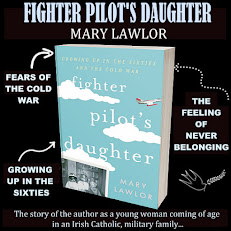



































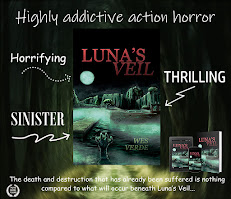










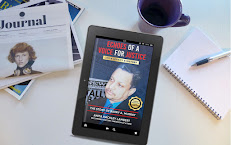



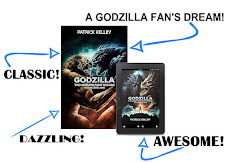
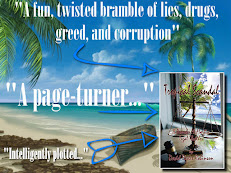





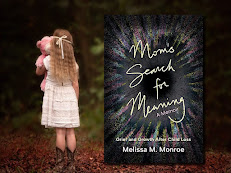



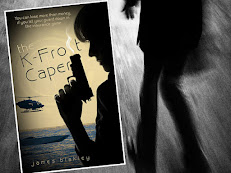

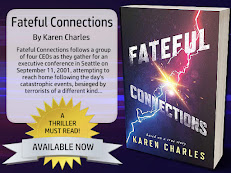
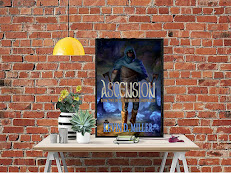






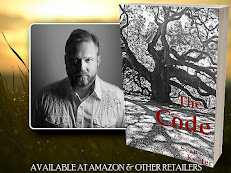








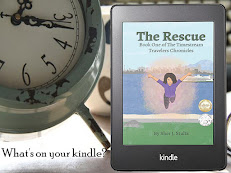












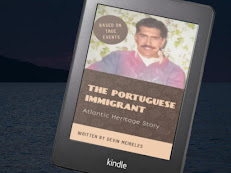
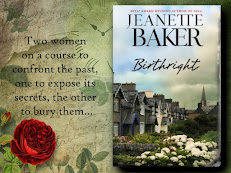
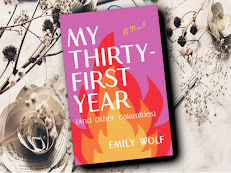
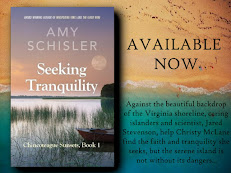
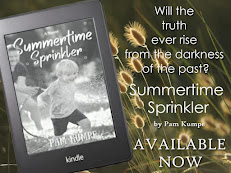




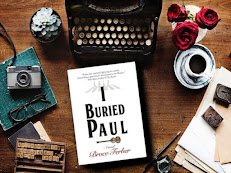
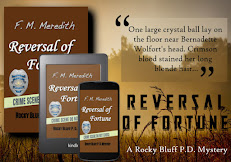


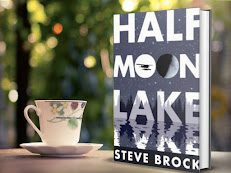

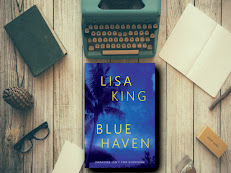



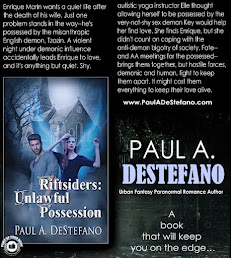

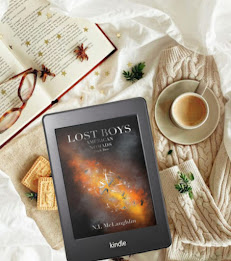









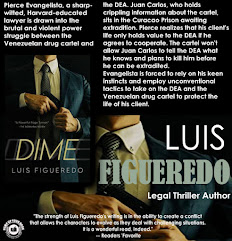























No comments:
Post a Comment